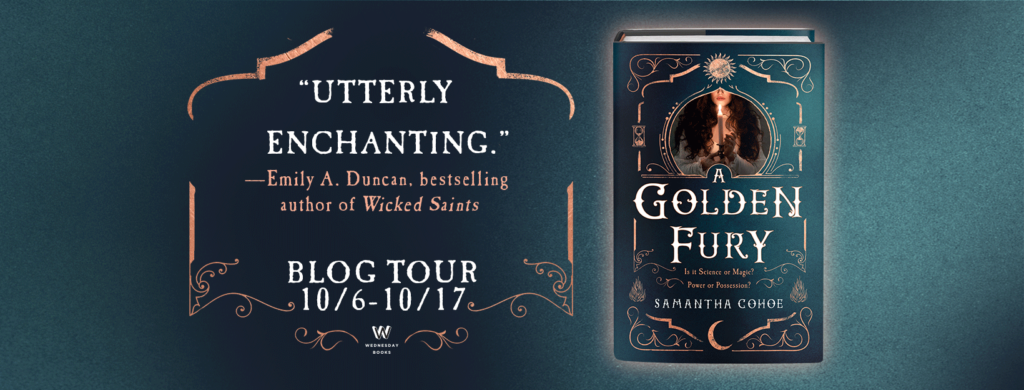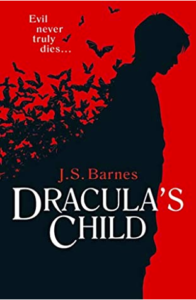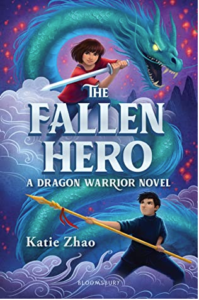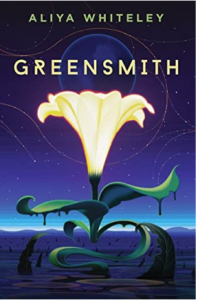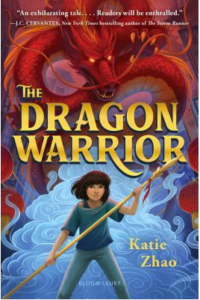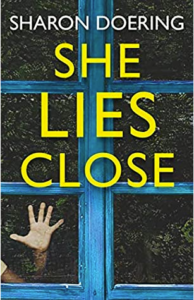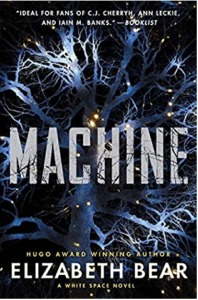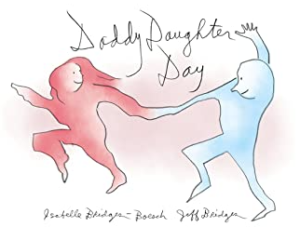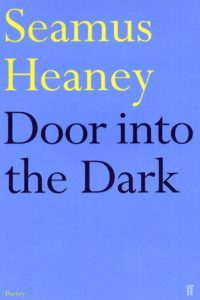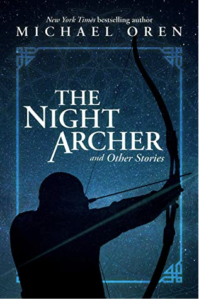It’s been so long since I’ve read a standalone YA novel that I barely know what to do with myself at the end of A Golden Fury, in no small part due to Samantha Cohoe’s gifts as an author. Despite the ending being quite firmly The End, I’m so invested in these characters and their milieu that I can’t help wanting to know so much more about what happens next to our heroine Thea Hope and her friends.
 Ofc, I should start at the beginning: Thea is the only daughter of Marguerite Hope, the greatest alchemist of her generation. Marguerite has gained renown for the alchemical armor she created for Louis XVI and, between that and the beauty elixirs she skillfully prepares, could enjoy a life of comfort and wealth despite being English in a politically turbulent France. But Marguerite has ambitions to cement her place in the history books by synthesizing the long lost Philosopher’s Stone, and has trained up Thea as her assistant.
Ofc, I should start at the beginning: Thea is the only daughter of Marguerite Hope, the greatest alchemist of her generation. Marguerite has gained renown for the alchemical armor she created for Louis XVI and, between that and the beauty elixirs she skillfully prepares, could enjoy a life of comfort and wealth despite being English in a politically turbulent France. But Marguerite has ambitions to cement her place in the history books by synthesizing the long lost Philosopher’s Stone, and has trained up Thea as her assistant.
The relationship between mother and daughter has recently been strained, however, by Thea’s own relationship with Marguerite’s last apprentice, Will Percy. Once Marguerite realized that her seventeen year-old daughter had fallen in love with charming, handsome Will, she quickly sent him packing. But Thea has been keeping up a secret correspondence with her love as he travels first to Prussia then to England while plying his trade.
Concerned by rising anti-British sentiment in their adopted country, Marguerite makes plans for Thea to return to their motherland. Not even Thea’s small delight at the opportunity to see Will again can make up for how hurtful this feels. She and her mother are so close to finally making the stone, and to be sent away at this crucial juncture feels like the worst professional and maternal rejection. But when things go horribly awry in France, Thea must flee the country in search of a father she’s never known, whose interest in the Stone may be far stronger than any paternal feelings he may have for a daughter he never even knew existed. Can Thea complete her mother’s work without courting disaster, madness or worse?
This was probably one of the most realistic depictions of an intelligent, angry young woman I’ve read in a long, long while. Told from Thea’s point of view, it’s easy to sympathize with her completely legitimate feelings even as the discerning reader can see clearly between the lines of what’s actually happening around her. I also very much appreciated her complicated relationships, especially with her parents. Whether through design or neglect, they molded Thea into an extraordinary young woman who is smart and sensitive while still being relatively sheltered. Ms Cohoe deftly balances Thea’s skills with her limitations to create a wholly believable teenage heroine who makes intelligent choices based on her experiences as we’ve seen them. I wish that that wasn’t as much of a rarity in YA as it often feels, but it was truly nice here to see an actually smart heroine do actual smart things to further the story.
There’s a lot of fascinating scholarship here as well on the subjects of alchemy and the events and mores of the late 18th century. Ms Cohoe’s treatment of the Philosopher’s Stone brings to mind Dr Jekyll’s ill-fated elixir (tho that latter, in retrospect, bears zero distinguishing characteristics from straight booze.) AGF is a wonderfully atmospheric tale of a young alchemist trying to find a place for herself — incorporating questions of what it meant to be a woman of that age along with the lessons that that can still teach us today — even as she is constantly undermined by people claiming to want the best for her. It’s a terrific coming-of-age tale, and hopefully the first in Ms Cohoe’s long and successful oeuvre.
A Golden Fury by Samantha Cohoe was published October 13th, 2020 by Wednesday Books, and is available from all good booksellers.

